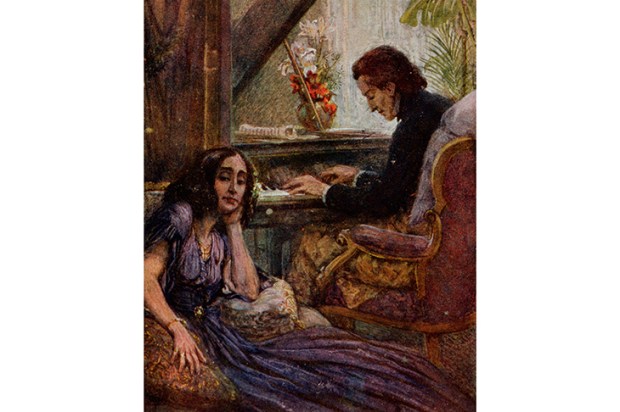The problem with writing about writers — and a particular blight on the current vogue for autofiction — is that writers do not necessarily live very interesting lives. Wrangling with editors, hatereading your rivals, making coffee and (occasionally) typing are all consuming occupations, but not the stuff of prepossessing narrative. That, at least, wasn’t an issue for Jean Rhys, whose colonial childhood and dissolute adulthood gave her ample material for fiction. But reprocessed by Caryl Phillips as the subject of this new novel, Rhys (or rather Gwendoline, since she has yet to take her pen name in the period Phillips covers) is somehow rendered boring.
A fractured relationship with her mother means that Gwen is never at home in her Caribbean birthplace; at boarding school in England, her foreignness marks her out for cruelty from the other girls, who call her ‘white cockroach’. She ditches her conventional education for a theatrical one, and then has her acting ambitions smashed by teachers who deplore her overseas accent. The next best thing is to become a chorus girl, and from that follows a life of ‘gentlemen’ and ‘allowances’, coded negotiations of transactional sex in expensive restaurants and seedy flats, and lots of drinking.
Phillips tells this story in a series of flashbacks-within-flashbacks, framing the narrative in Gwen’s return to the Caribbean, accompanied by a husband who is as unsatisfactory as all the other men she’s had. ‘Perhaps, my husband, if I show you the West Indies, then you will finally come to understand that I am not of your world,’ she thinks, and as she reflects on how she was formed, the novel vaults back into her early years. What she remembers is often another act of remembering, so we see her after she received the news of her father’s death, or after being thrown over by one of her ‘gentlemen’.
This has a strange dissociating effect. Gwen is the novel’s central consciousness (barring a couple of distracting chapters from the perspective of subsidiary characters), but we have no privileged access to her: whether it’s having an abortion or getting married, everything has always already happened by the time the reader is invited in. That includes her writing, which she is never seen to do, or even to think about. The title suggests her as an avatar for Britain’s fading empire, but that theme too goes unrealised, and there seems in the end no reason to read this novel when one could be reading Rhys herself.
Got something to add? Join the discussion and comment below.
Get 10 issues for just $10
Subscribe to The Spectator Australia today for the next 10 magazine issues, plus full online access, for just $10.
You might disagree with half of it, but you’ll enjoy reading all of it. Try your first month for free, then just $2 a week for the remainder of your first year.














Comments
Don't miss out
Join the conversation with other Spectator Australia readers. Subscribe to leave a comment.
SUBSCRIBEAlready a subscriber? Log in